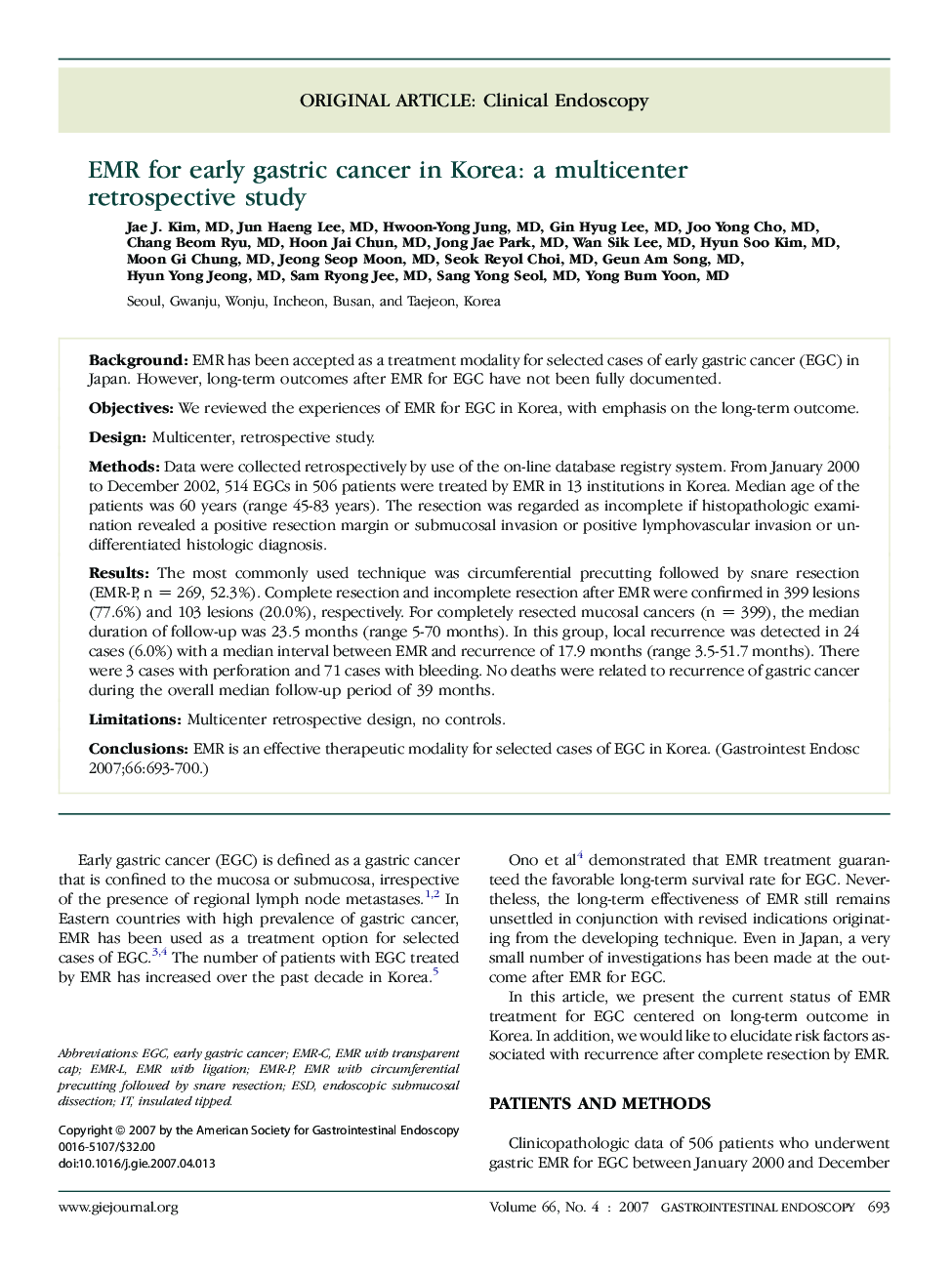| Article ID | Journal | Published Year | Pages | File Type |
|---|---|---|---|---|
| 3308171 | Gastrointestinal Endoscopy | 2007 | 8 Pages |
BackgroundEMR has been accepted as a treatment modality for selected cases of early gastric cancer (EGC) in Japan. However, long-term outcomes after EMR for EGC have not been fully documented.ObjectivesWe reviewed the experiences of EMR for EGC in Korea, with emphasis on the long-term outcome.DesignMulticenter, retrospective study.MethodsData were collected retrospectively by use of the on-line database registry system. From January 2000 to December 2002, 514 EGCs in 506 patients were treated by EMR in 13 institutions in Korea. Median age of the patients was 60 years (range 45-83 years). The resection was regarded as incomplete if histopathologic examination revealed a positive resection margin or submucosal invasion or positive lymphovascular invasion or undifferentiated histologic diagnosis.ResultsThe most commonly used technique was circumferential precutting followed by snare resection (EMR-P, n = 269, 52.3%). Complete resection and incomplete resection after EMR were confirmed in 399 lesions (77.6%) and 103 lesions (20.0%), respectively. For completely resected mucosal cancers (n = 399), the median duration of follow-up was 23.5 months (range 5-70 months). In this group, local recurrence was detected in 24 cases (6.0%) with a median interval between EMR and recurrence of 17.9 months (range 3.5-51.7 months). There were 3 cases with perforation and 71 cases with bleeding. No deaths were related to recurrence of gastric cancer during the overall median follow-up period of 39 months.LimitationsMulticenter retrospective design, no controls.ConclusionsEMR is an effective therapeutic modality for selected cases of EGC in Korea.
